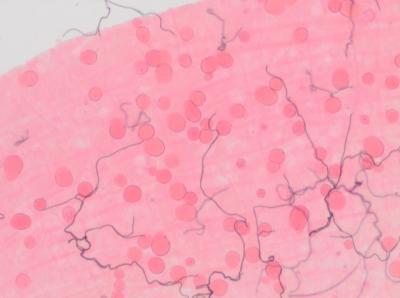
Credit: W. Robert Shaw, 2020 (CCBY 2.0)
Multiple bouts of blood feeding by mosquitoes shorten the incubation period for malaria parasites and increase malaria transmission potential, according to a study published December 31 in the open-access journal PLOS Pathogens by Lauren Childs of Virginia Tech, Flaminia Catteruccia of the Harvard T.H. Chan School of Public Health, and colleagues. Given that mosquitoes feed on blood multiple times in natural settings, the results suggest that malaria elimination may be substantially more challenging than suggested by previous experiments, which typically involve a single blood meal.
Malaria remains a devastating disease for tropical and subtropical regions, accounting for an estimated 405,000 deaths and 228 million cases in 2018. In natural settings, the female Anopheles gambiae mosquito — the major malaria vector — feeds on blood multiple times in her lifespan. Such complex behavior is regularly overlooked when mosquitoes are experimentally infected with malaria parasites, limiting our ability to accurately describe potential effects on transmission. In the new study, the researchers examine how additional blood feeding affects the development and transmission potential of Plasmodium falciparum malaria parasites in An. gambiae females.
“We wanted to capture the fact that, in endemic regions, malaria-transmitting mosquitoes are feeding on blood roughly every 2-3 days”, says W. Robert Shaw, a lead author of this study. “Our study shows that this natural behavior strongly promotes the transmission potential of malaria parasites, in previously unappreciated ways”.
The results show that an additional blood feed three days after infection with P. falciparum accelerates the growth of the malaria parasite, thereby shortening the incubation period required before transmission to humans can occur. Incorporating these data into a mathematical model across sub-Saharan Africa reveals that malaria transmission potential is likely higher than previously thought, making disease elimination more difficult. In addition, parasite growth is accelerated in genetically modified mosquitoes with reduced reproductive capacity, suggesting that control strategies using this approach, with the aim of suppressing Anopheles populations, may inadvertently favor malaria transmission. The data also suggest that parasites can be transmitted by younger mosquitoes, which are less susceptible to insecticide killing, with negative implications for the success of insecticide-based strategies. Taken together, the results suggest that younger mosquitoes and those with reduced reproductive ability may provide a larger contribution to infection than previously thought.
According to the authors, the findings have important implications for accurately understanding malaria transmission potential and estimating the true impact of current and future mosquito control measures.
###
Peer-reviewed; Experimental study; Animals; Cells
In your coverage please use this URL to provide access to the freely available article in PLOS Pathogens: http://journals.
Citation: Shaw WR, Holmdahl IE, Itoe MA, Werling K, Marquette M, Paton DG, et al. (2020) Multiple blood feeding in mosquitoes shortens the Plasmodium falciparum incubation period and increases malaria transmission potential. PLoS Pathog 16(12): e1009131. https:/
Funding: F.C. is funded by a Faculty Research Scholar Award by the Howard Hughes Medical Institute (HHMI) and the Bill & Melinda Gates Foundation (BMGF) (Grant ID: OPP1158190, http://www.
Competing interests: The authors have declared that no competing interests exist.
Media Contact
W. Robert Shaw
[email protected]
Related Journal Article
http://dx.




